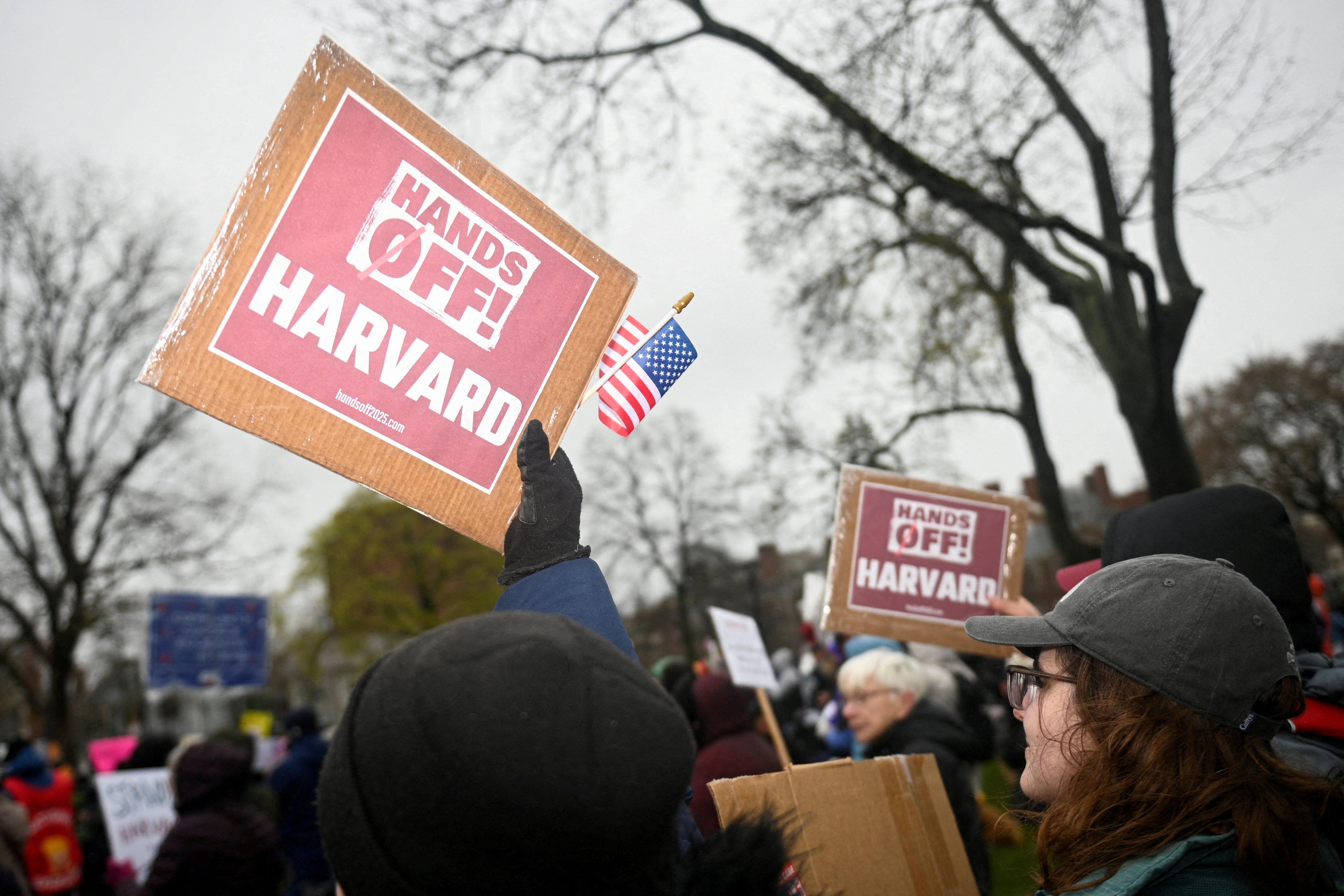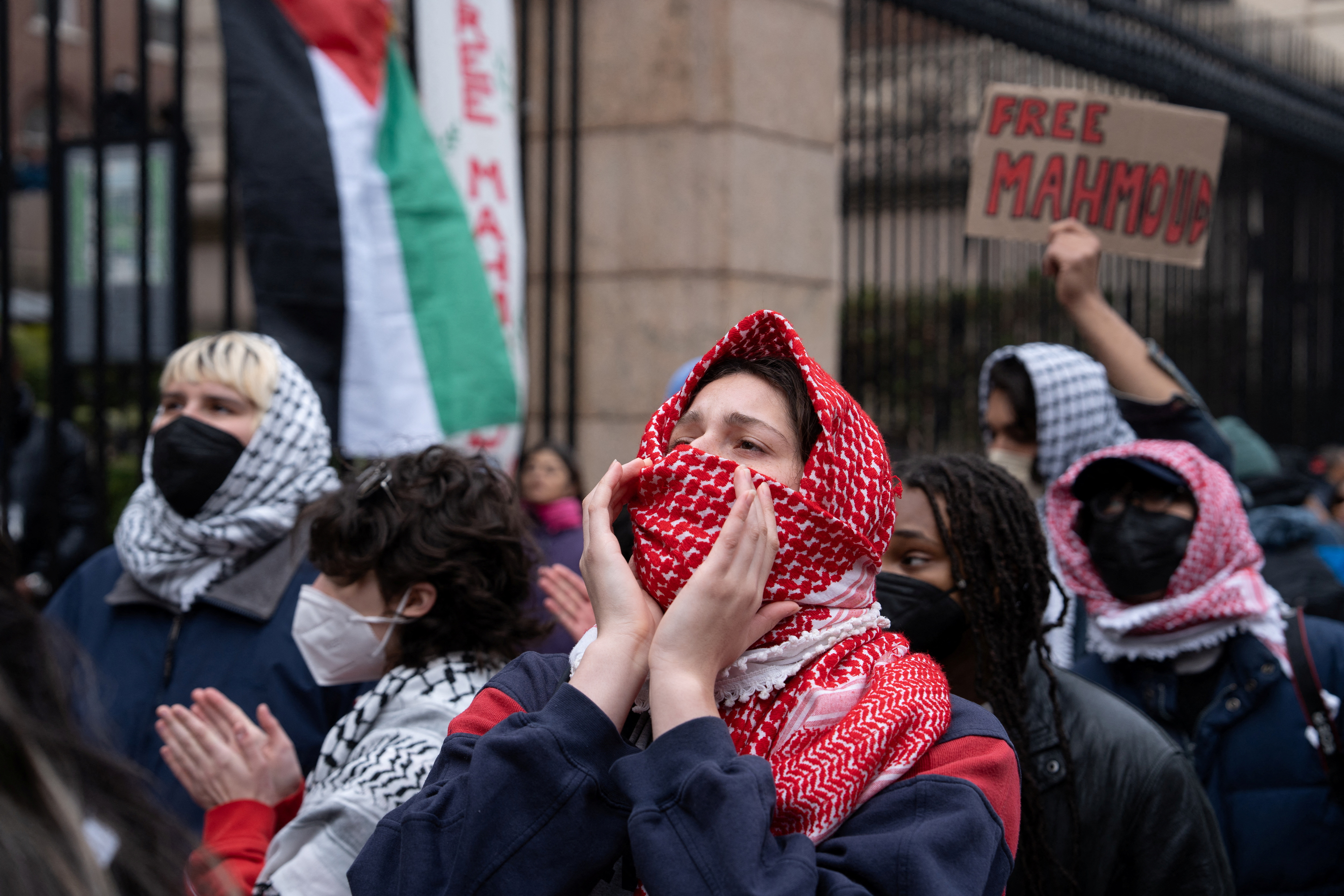The White House has brushed off criticism levied by dozens of US universities and colleges that accused the Trump administration of unprecedented "political interference" in American academia.
More than 100 educational institutions issued a joint letter earlier on Tuesday condemning President Donald Trump's undue "intrusion."
The move comes a day after Harvard University sued the Trump administration, which has threatened to cut funding and impose outside political supervision.
"The president has made it quite clear that it's Harvard who has put themselves in a position to lose their own funding by not obeying federal law, and we expect all colleges and universities who are receiving taxpayer funds to abide by federal law," Trump spokeswoman Karoline Leavitt said told reporters on Tuesday.
The educational facilities — including Ivy League institutions Princeton and Brown — said in the letter that they spoke with "one voice against the unprecedented government overreach and political interference now endangering American higher education."
"We are open to constructive reform and do not oppose legitimate government oversight. However, we must oppose undue government intrusion," it said, adding: "We must reject the coercive use of public research funding."
Trump has sought to bring several prestigious universities to heel over claims they tolerated campus antisemitism, threatening their budgets, tax-exempt status and the enrollment of foreign students.
The letter said the schools were committed to serving as centres where "faculty, students, and staff are free to exchange ideas and opinions across a full range of viewpoints without fear of retribution, censorship, or deportation."

Harvard lawsuit
Trump's war against universities has seen him threaten to cut federal funding over policies meant to encourage diversity among students and staff.
The Republican president has also pursued a wide-ranging immigration crackdown that has expanded to foreign students, revoking their visas, often for little or no reason.
The White House has publicly justified its campaign against universities as a reaction to unchecked antisemitism and the desire to reverse diversity programmes aimed at addressing the historical oppression of minorities.
Leavitt told reporters that Trump was "not going to tolerate illegal harassment and violence towards Jewish American students or students of any faith on our campuses across the country."
"We will be responding to the lawsuit in court," she added.
The administration claims protests against Israel's war in Gaza that swept across US college campuses last year were rife with antisemitism, although students, many of whom are Jewish, have denied the accusations.
Many American universities, including Harvard, cracked down on the protests over the allegations at the time.
In the case of Harvard, the White House is seeking unprecedented levels of government control over admissions and hiring practices at the country's oldest and wealthiest university.
But Harvard rejected the government's demands, prompting the administration last week to order the freezing of $2.2 billion in federal funding to the institution.
In its lawsuit, Harvard calls for the freezing of funds and conditions imposed on federal grants to be declared unlawful, as well as for the Trump administration to pay the institution's costs.
The Department of Homeland Security has also threatened Harvard's ability to enrol international students unless it turns over records on visa holders' "illegal and violent activities."
International students made up 27.2 percent of Harvard's enrollment this academic year, according to its website.

War on universities
The Trump administration has been tightening its chokehold on the prestigious university amid a wider crackdown on US universities over pro-Palestine protests and other issues.
He started with Columbia, which ignited a wave of pro-Palestine protests across US campuses, cancelling $400 million in federal funding to the university.
The university ultimately yielded to his pressure, announcing sweeping policy changes, including campus protest policies.
He then targeted Harvard, launching a review of alleged antisemitism and threatening to withdraw $9 billion in federal funding from the university.
He later froze federal funding for both Cornell University and Northwestern University for allowing pro-Palestine protests.















